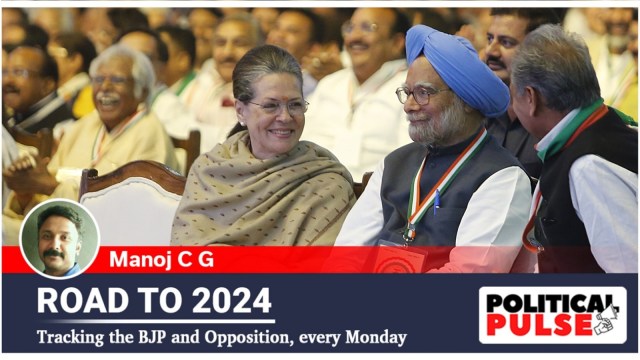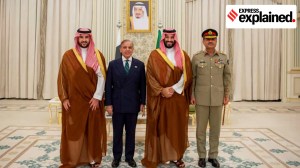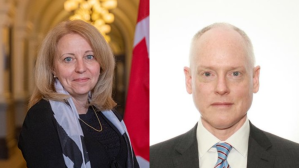Diplomacy and politics: As Cong marches into delicate terrain, some unease
As Hindi heartland parties keep silent, many leaders fear that the Congress's strong Palestine position could help BJP politically exploit issue.
 The Congress has taken a strong position in favour of Palestine, drawing on its historical affinity to the cause, while refraining from openly calling the Hamas attack inside Israel an act of “terror”. (File Photo)
The Congress has taken a strong position in favour of Palestine, drawing on its historical affinity to the cause, while refraining from openly calling the Hamas attack inside Israel an act of “terror”. (File Photo) Domestic politics and international relations have always been intertwined and intimate, and India’s diplomacy has more often than not reflected the political and ideological outlook of the party in power. It was the same with the Congress in the past and with the BJP now.
Now, in the Narendra Modi era, India’s relations with the world have become a factor in electoral politics as well. Given the BJP’s penchant for linking the international to the domestic audience – the constant chatter about Modi’s “global image” and India’s “rising stature” at the world stage, for example – the Opposition, especially the Congress, tends to walk cautiously on developments.
So, the Congress largely endorsed the BJP government’s approach on the Russia-Ukraine war, and spoke largely in the same voice as the government on the bilateral tension with Canada. On Qatar, the Congress’s official response has also been guarded, asking the government to use all its “diplomatic and political leverage” to ensure that former Naval officers sentenced to death have full recourse to appeals and “also do the utmost to get them released at the earliest”.
Individual voices in the Congress have taken a more harsh line. Congress Lok Sabha MP Manish Tewari accused the government of failing to protect “the dignity, honour, and lives of former Indian Navy personnel”.
Earlier, the Congress had berated Modi for his 2019 ‘Abki Baar Trump Sarkar’ pitch, and has been heavily critical of the government’s handling of Chinese incursions.
No issue, though, has divided the government and Congress as the Israel-Hamas war. The Congress has taken a strong position in favour of Palestine, drawing on its historical affinity to the cause, while refraining from openly calling the Hamas attack inside Israel an act of “terror”. On the other hand, the Modi government last week abstained from a resolution at the UN General Assembly that called for a humanitarian truce in the Gaza conflict and the protection of civilians.
Former Congress president Sonia Gandhi has now laid down what can be interpreted as the party’s conclusive position on the crisis. In an article in The Hindu daily, she mentioned Hamas upfront, framing its strike as a “brutal attack” on Israel, and saying that the Congress believes that violence has no place in a decent world. But, Sonia was at the time heavily critical of Israel’s unprecedented military response.
“The destructive might of one of the world’s most potent military arsenals is being unleashed upon children, women and men who have no part in the Hamas assault; they, instead, for the most part, have been at the heart of decades of discrimination and suffering,” she wrote. While the world has been diminished by the brutal attacks on Israel, Sonia said, “the world stands diminished again by Israel’s disproportionate and equally brutal response”.
Some Congress leaders believe Sonia’s article was an articulation of her “anguish” given the Gandhi family’s close ties with the late Palestinian leader Yasser Arafat, who reportedly treated Indira as his sister and wept publicly at her funeral. He also attended the funeral of Rajiv Gandhi, while Sonia herself had met Arafat several times after joining politics.
In fact, her position on the Palestinian issue is not new. Delivering a lecture at Oxford on the theme Conflict and Coexistence back in 2002, Sonia said: “We recognise the rights of the Palestinian people to a viable state of their own as well as the right of Israel to live within secure borders. While we condemn all forms of violence and terrorism, we believe that there can be no lasting peace in West Asia without the legitimate concerns of the Palestinian people being addressed meaningfully. Growing economic and strategic cooperation between India and Israel does not make us insensitive to this reality.”
But in the current polarised politics, nuance can be lost, which is one reason many Congress leaders believe the party’s reluctance to call the Hamas attack a terror act could send the wrong signal and lead the BJP to politically exploit it. This view is shared not just by leaders from the Hindi heartland where the BJP is the strongest – and where many parties have incidentally refrained from wading into the issue – but their counterparts in other parts as well. They fear the BJP may frame it as a Muslim issue.
Lok Sabha MP Shashi Tharoor, who wanted the Congress Working Committee resolution on the crisis to name Hamas and call its October 7 strike a terror act, recently had referred to Hamas as terrorists — significantly while speaking from the Muslim League stage in Kerala — and the Israeli response violation of war laws and Geneva Convention. He argued that the conflict in the Middle-East should not be framed as a “Muslim issue”, rather it was a matter of “human rights”.
Photos



- 01
- 02
- 03
- 04
- 05




























